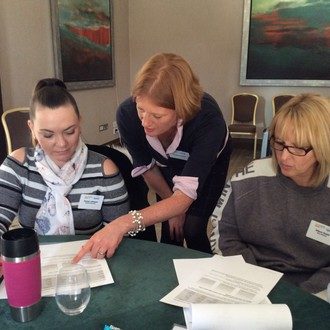Are you aware of how you react to stress and the signs to look out for?
Everyone’s work can be frustrating and at times stressful – long hours, responsibilities, demanding clients (or colleagues!) and heavy workloads certainly don’t make for a relaxing day.
Many of the professionals I work with tell me that they sometimes feel guilty because they aren’t able to keep all the balls in the air at all times, especially when they see colleagues doing just that. (At this point I remind them that appearances can be deceptive!) Perhaps it’s human nature to keep up the outward pretence that everything’s fine, however it often seems to be the way of professionals to tell themselves that everything’s OK too, ignoring the physical signs that it clearly isn’t.
The signs of stress manifest themselves consistently, so if you recognise more than one or two from the list below in yourself, it may be time to think about what you can do to improve your personal wellbeing. Whilst we have jobs that are pressurised and at times can be stressful, it’s not OK to assume that stress is a normal and expected by-product of work.
I define stress as the feeling of being out of control, and the good news is that there is plenty that can be done to help you regain control over your professional and personal life.
The first step is to accept that you are indeed suffering from stress, so ask yourself whether you are routinely experiencing:
- Intrusive negative thoughts (“I can’t do this anymore”, “What’s the point?”)
- Self-blame
- Feelings of hopelessness and helplessness
- Physical problems, such as digestive issues, headaches, lethargy
- Bottling up emotions and ruminating on worries
- Lack of purpose, direction and feeling ‘stuck’
- Self medicating with caffeine, sugar, alcohol, drugs to ‘keep you going’
- Scepticism
- Excessive guilt
- Loneliness and isolation from others
- Compulsive behaviours (overspending, overeating, gambling, sexual addictions)
- Poor self-care (paying less attention to your hygiene or appearance)
- Inability to sleep or switch off, worrying about cases outside work
- Mental and physical tiredness
- Apathy, sadness, no longer finding activities pleasurable
- Difficulty concentrating
- Over-reaction when another case is added to the list
Once you have admitted to yourself that you aren’t coping, that you aren’t thriving, identifying your personal triggers is an important step towards tackling them.
Everyone reacts differently, what is motivating to one person is challenging to another and makes them feel immediately out of control. But the key point here is that we are all human beings, no one is super human.
If you recognise some of the above signs, you will not be alone, don’t ever tell yourself that you’re the only one who isn’t coping and instead accept that the strongest person is actually the one who is able to ask for help.
If you feel you need to take positive action now, please contact me on 07500 006383 or at carolyne@carolynecrowe.co.uk.
Until next time,
Carolyne








